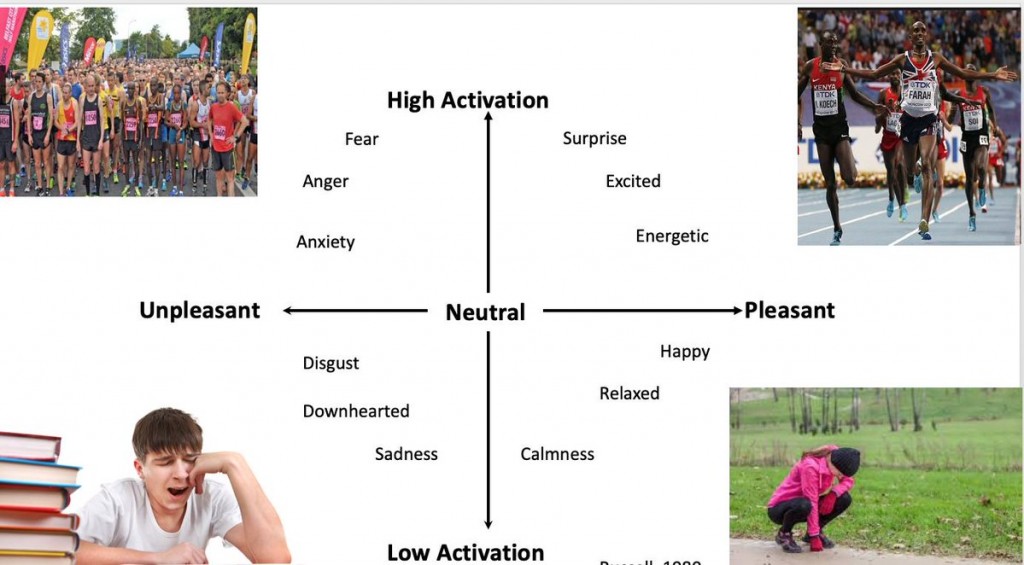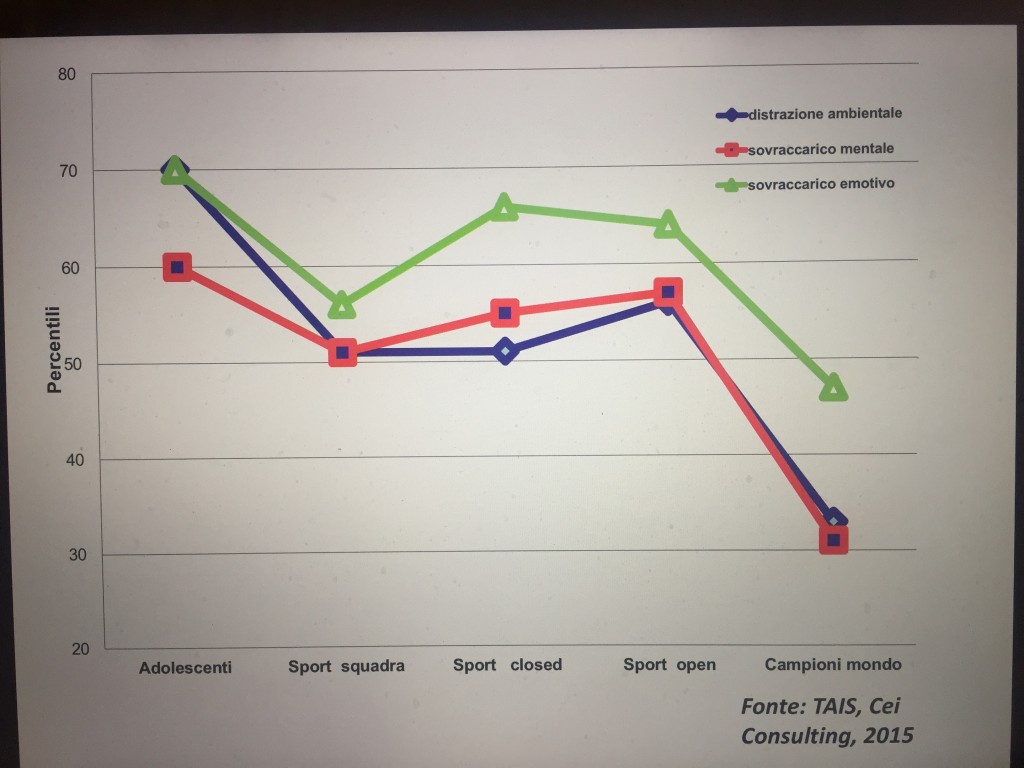Today in class I was asked how a coach can teach young people he or she coaches how to deal with competition anxiety. In this regard I quote a few paragraphs from my book Coping with Stress.
Thinking plays an essential role in the establishment of the anxiety response. In fact, in order to develop behaviors that can be defined as anxious, it is not only sufficient to look at alterations of a physiological nature. An even relevant increase in heart rate can occur from a rather wide range of situations such as running stairs, carrying excessive weight, walking at a fast pace, and many others. These conditions relate to psychological states in which an individual might at most feel tired or fatigued but certainly would not call himself or herself anxious. One’s heart rate can also be accelerated at other times, such as evaluative situations (the school test, the college exam, a job interview, a sports performance, a new professional responsibility); in those instants while one is aware of the alteration in one’s heart rate it is possible to have two types of thoughts:
- confident – “This is how I feel every time I do well, my heart is sending me energy,”
- not confident – “My heart is in my throat, it’s all rumbling inside me, I’m not getting it right anymore, I will definitely make a mistake.”
It is thus shown that it is thoughts that largely determine whether the physiological reactions one feels are favoring or hindering performance. It is thus thoughts that guide the interpretation of physical sensations, so identical physiological conditions can be experienced as adequate to provide optimal performance despite the fact that, on the surface, they may appear to be hindering. This pointing out is particularly important to understand and especially to remember in the moments that matter, since it gives us the ability to guide our actions through the development of thoughts that we can consciously construct ourselves. In sports of excellence this aspect is particularly evident, as it is certainly not possible to remain calm and serene before an Olympic final, especially if one can win. Athletes know that the anxiety they feel is positive, it is pure energy that they are feeling in those and that tells them, “Come on, the whole body is with you, get busy, go and do what you can do: do your best.” It is precisely from them that we should learn to feel the stress, to feel the fear, experiencing it as a demonstration that we are about to do something that is very important to us, and if it is important, how can you not have your heart in your throat?
What distinguishes those who will then provide an outstanding performance is their ability to handle their pre-race anxiety in positive terms, translating it into energy that will drive them to enhance their skills, because they have learned how to use them in a positive way In these situations the winning athlete does not let his or her emotions dominate him or her, because if that were to happen he or she would be paralyzed by the fear of failure and the responsibility of having to provide a great performance at all costs. Here is what some great champions have said in this regard.
“You are strong in the head if you can remain calm and have fun even when things are not going well, and if you can never lose confidence in yourself and in teamwork.”(Valentino Rossi, driver, 7-time world champion)
“It depends on the characters, nervous tension used to eat me up. I was losing three kilos in the race: the more I ate, the more weight I dropped. And at night I wouldn’t sleep, my eyes were wide open. I was a lit pile, ready to jump from too much tension.” (Mark Spitz, swimmer, 7 gold medals at the Munich ’72 Olympics) (from E. Audisio, Hackett and the club of the elect, La Repubblica, March 22, 2007).
“That day in Los Angeles I cried out that I wanted mommy, I wanted someone to cradle me in their arms, I wanted to be considered for the first time a fragile, tender, not bomb-proof creature. Yes I was the one who dominated myself, the one who sought strong emotions by blasting them in the right way. But in an instant I realized that all that stress had burned me up inside, that by dint of living always on the edge convinced that with my very last energies I would pull myself up, I had consumed everything and eroded even that small personal reserve one keeps for special occasions.” (Sara Simeoni, high jump, 3 medals at the ’76, ’80 and ’84 Olympics) (from E. Audisio, Quanti modi per dire mi arrendi, La Repubblica, July 13, 1987).
The awareness that even champions can be anxious before an important competition should be helpful to all people. Sometimes people are inclined to think that winners are cold, calculating individuals who do not feel the same emotions as ordinary people and that this condition of theirs is a gift they carry with them from birth and have inherited from someone in their family. Their sporting achievements become memorable feats and so some become myths, in which the tale becomes legend and surpasses the reality of the facts. Instead, even champions have struggled to rise to this role, and as a great writer like Ernest Hemingway rightly reiterated, genius is 10 percent talent and 90 percent sweat.
This means that the management of one’s emotions is a skill that can be improved, and that psychological condition we call anxiety, stress or excessive tension that arises from situations that are not objectively dangerous is not in itself bad, because even those who deliver performance at the highest level, such as sports champions, can feel very anxious before competition. The difference between people is, therefore, in the ability to positively emerge from this psychological state. Further confirmation comes from the remarkable popularity of relaxation techniques over the past 100 years; it is a practical demonstration of how anxious people can learn to reduce these reactions of theirs and carry out a satisfying daily life.
It is well known that learning to relax involves learning to influence certain physiological functions (heart and respiratory rates and visceral functions) and muscle tension, in parallel with a gradual mental relaxation. In this area, it is no coincidence that one of the most popular techniques, autogenic training devised by Schultz in the early years of the xx century, consists of relaxation training that the individual generates for himself. Training that requires daily application of at least 10 consecutive minutes for several months. This approach reveals that the psychological state called relaxation is a condition that can be achieved voluntarily through an activity that is absolutely analogous to that which each person has carried out whenever he or she has learned something new be it a cognitive activity as it was in school for math and Italian or a motor or sports activity.
The secret lies in the willingness to want to learn, following a correct method, and repetition for a sufficient period of time to develop the level of skill one intends to achieve or that is necessary to successfully overcome certain psychological conditions, such as anxiety before a personally important event.







